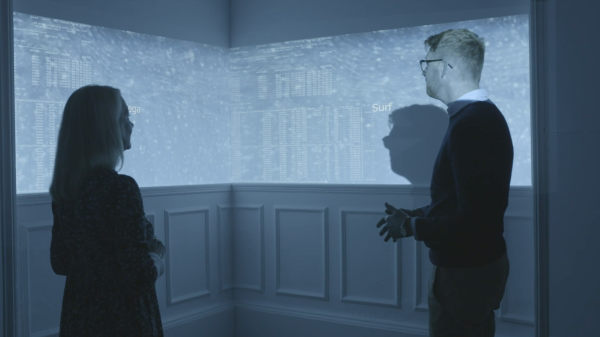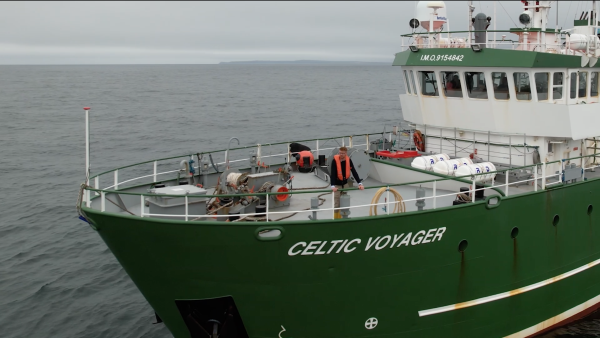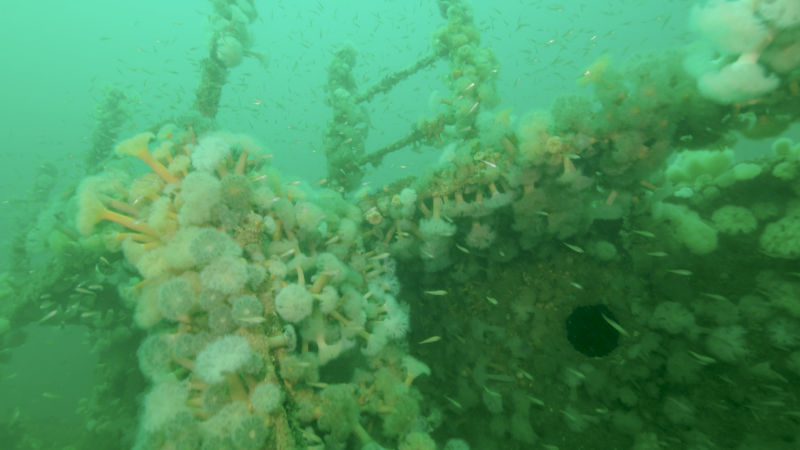The work of iCRAG, the SFI Research Centre in Applied Geosciences, is highlighted in a new online series uncovering the innovative global stories of scientists and sustainable development.
The series, ‘Unlocking Science’, produced for the International Science Council (ISC) by BBC StoryWorks Commercial Productions explores the ever-changing face of science culture, where diversity of thought and creative approaches to our most immediate and complex concerns are championed.
Unlocking Science features stories from scientists who are finding solutions to some of humanity’s most pressing issues including renewable energy, climate change and sustainability.
The work of iCRAG researcher Dr Mark Coughlan is detailed in the 5 minute: "What do Ireland's shipwrecks have to do with renewable energy?". The film highlights the innovative use of shipwrecks to map the sea bed to inform the siting of offshore windfarms.
Speaking on the online launch of Unlocking Science, Dr Mark Coughlan said: “The seas around Ireland provide an abundance of natural resources, not least of all energy in the form of wind, wave and tidal currents. My work with iCRAG examines how we can map the seabed to understand its evolution over time and find preferred locations to build offshore renewable energy. Shipwrecks are an unusual and complex environment, not only for historical stories and interest, but they also act as natural laboratories on the seafloor. Shipwrecks perturb near-seabed currents, causing certain types of sediments to be washed away, or scoured causing structural instability. By studying these changes we can better predict how man-made structure on the sea bed, like wind turbines, will behave over time.”
To date Mark and his team have mapped 6 shipwrecks in detail and built computer simulation models using computational fluid dynamics to better understand current flow patterns around these wrecks and how they can be used to explain patterns of seabed change.
Under the Irish Government’s Climate Action Plan, 5GW of offshore wind power will be brought online by 2030. With increased focus on renewable energy and decarbonisation, the provision of high quality data is central to development of the offshore wind sector. INFOMAR, Ireland’s national seabed mapping programme, gathers cutting-edge seabed mapping data and physical samples, supporting a range of maps and products. iCRAG researchers use this data to generate detailed maps, build computer models and simulate the interaction of seabed sediments, seabed current flow and man-made structures.
The film also features the work of iCRAG-UCD Parity Studios Artist in Residence Martina O’Brien. A visual artist interested in the marine environment, Martina’s practice explores links between people, nature and technology, bound by perceptions of time and the earth sciences.
Commenting on the online launch of the series, Martina O’Brien said: “My main fascination with the ocean is that it is one of the last places on Earth that is unexplored. Anything below 200m deep is in darkness. Through working with Mark and other researchers, I can visually gain access to the seabed to realise my ideas through moving image and installation.

Prof. Murray Hitzman, iCRAG Director said: “Much of iCRAG’s research is focussed on finding the resources needed to power a sustainable society and achieve the UN Sustainable Development Goals. Mark’s work plays a central role in better informing the development of offshore wind, an area that has huge potential to deliver clean electricity to Irish homes and cities as highlighted by the Climate Action Plan. Through working with state agencies, and industry partners, iCRAG scientists are directly contributing to the realisation of this decarbonised future.”
Along with iCRAG, two other SFI Research Centres, I-Form and Lero, are featured in the series.
Dr Siobhan Roche, Director of Economy at Science Foundation Ireland said: “I sincerely congratulate the teams at iCRAG, I-Form and Lero in their involvement with this International Science Council online series, produced by BBC StoryWorks, and the development of such interesting and engaging short films. Each of these centres undertakes ground-breaking research and it is wonderful to see their work recognised by being included in this global online initiative"
“Each of these films shows the real-life benefits as well as the human impact of their work. The timing of these videos coincides with the Government of Ireland’s Creating Our Future campaign, which provides the public with the opportunity to submit their ideas for research to make our country better for all. I would encourage everyone to watch these inspirational films, think about the areas of your life that you this research could contribute to a better future and submit your ideas to www.creatingourfuture.ie.”
The film was produced by BBC StoryWorks for iCRAG, and is presented by the International Science Council. BBC StoryWorks is the commercial content division of BBC Global News.
Watch the iCRAG video on the Unlocking Science website: http://www.bbc.com/storyworks/unlocking-science/what-do-irelands-shipwrecks-have-to-do-with-renewable-energy





